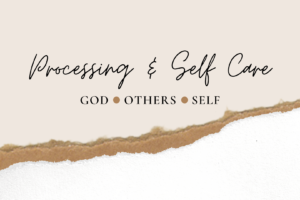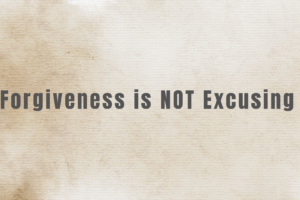What is counseling?
In the past couple of months, we’ve wanted to answer some of the most frequently asked questions we get from potential new clients to be as clear as possible about what they can expect. But one thing we’ve noticed is that many people don’t always know what counseling actually is or what it entails.
People often make assumptions about therapy based on things they’ve heard or seen. They think it’s lying down on a couch talking about your past. Or just coming and venting about your week. My kids think I help sad people feel better. Some people think it’s just talking, and the therapist is there to listen. Some think it’s only for “crazy” people who have severe mental health problems, believing an outdated stigma. Others too casually think of their therapist like their best friend. Some believe therapy will fix or cure their problems. Some think it will be over in months, and some think it will last for years.
There are many misconceptions like these about counseling (or therapy). It is true that every counseling experience will vary based on the client’s personality and presenting issues and the therapist’s personality, therapeutic approach, training, and experience. However, there are some commonalities across the board that can inform clients on what to expect.
How long will therapy last? We can’t always determine how long clients need to be in therapy. Sometimes people work on their presenting issues and are finished within a few months, but others are in therapy for years. We know this can be distressing to clients because they want to know what they are committing to, but we try to help them take one step at a time and move through their process at a compassionate pace so they’re able to make as much progress as possible.
How long are sessions, and how often does a client need to come? Sessions are usually 50 minutes at Full Life, but some clients come for an hour and a half or two. Some people do counseling intensives and come for a few hours in one day. Most clients begin coming once a week to therapy unless their therapist recommends more or less often. Some start with every other week based on scheduling or financial needs. Your therapist works with you to determine what schedule works best.
What does the counseling process look like? Every counselor approaches this differently, but at Full Life, in the beginning of therapy, we get to know our clients through assessing and gathering information about their lives and presenting issues. Every client answers questions in their intake paperwork, and we might also use questionnaires and scales for assessment. If we don’t believe we’d be a good fit based on the information gathered, we help our clients with the referral process to find someone who could be better for them.
If we are a good fit, we collaborate with clients to create goals for therapy and build their treatment plan based on those goals. Then we begin actively working on those treatment goals with them. Once a client has completed (or has nearly completed) their treatment goals, we’ll reassess and see if there are any new goals the client would like to add or if the client is ready to finish therapy.
What do we do in session? Therapy isn’t just talking to someone about your problems. There is much more that goes into the process. Though this differs from counselor to counselor, most of the time we spend a few minutes catching up and hearing about the client’s week, and then we begin actively working on their presenting issues.
Those presenting issues could be a wide range of issues— mental health concerns (such as depressive disorders, anxiety disorders, and PTSD and other trauma-related issues), relationship issues, grief, adjustment issues, and stage of life issues to name a few. Again, if a client’s presenting issues are outside of our scope of practice, we refer.
The session can involve many different things. There is talking back and forth, the therapist actively listening and using reflective and supportive questions and statements to help clients process their experiences and problem-solve about how to best handle those things. The therapist might also spend time educating on a concept or teaching a skill or intervention. Sometimes the therapist uses outside material, like books, podcasts, workbooks, videos, and handouts. They also might use specific therapy models (or interventions from those models), like EMDR, CBT, DBT, or EFT, and follow a more structured approach. Many therapists give clients “homework” assignments, as well, to continue building skills and keep processing throughout the week.
Sometimes we address and process things from a person’s past. If the client wants to stay present / future focused, though, we work through current issues and how they can best handle similar issues in the future.
Who is therapy for? No, it’s not just for “crazy” people or people with severe mental illnesses. It is not an indicator of weakness, either, but instead is a sign of strength. Therapy can be helpful for anyone. It is completely confidential so people can feel safe bringing whatever they’re facing into the room.
What is the counseling relationship like? As much as your therapist can feel like a friend, friendships should be two-sided, mutual and reciprocal in nature. Counseling is not this way because the therapist isn’t sharing most of their personal lives with clients. Also, therapists are discouraged from having relationships with clients outside of the counseling relationship, so it’s not the same as friendship.
A few final things to note. Therapy won’t cure or fix all problems, either. That’s a common misconception and unrealistic expectation. On this side of heaven, problems don’t always go away. Therapists aren’t magicians or God:), but they can do their best to help people resolve as much as possible and build their ability to handle whatever life brings in the future.
Therapy isn’t the same across the board, but clients can expect these kind of things at Full Life with any counselor they’d see. We hope this clears up some confusion, but if clients have any further questions about the therapy process, please don’t hesitate to reach out or discuss with their therapist.
Disclaimer: We love creating content that inspires and encourages our readers to prioritize their mental health. However, please note that our content is for informational and motivational purposes only and is not intended to replace professional counseling, therapy, or medical advice. Always seek the guidance of a qualified mental health professional for any concerns or treatment






Recent Comments